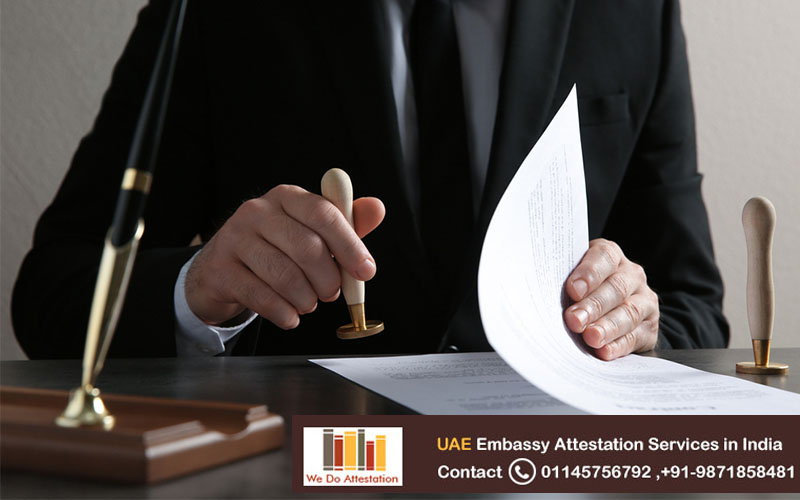UAE Embassy Attestation: Everything You Need to Know
When you're planning to travel or work in the United Arab Emirates (UAE), you may be required to provide attested documents. Attestation is the process of verifying the authenticity of a document, and it is an essential requirement for all official paperwork in the UAE. Whether you're seeking employment, applying for a visa, or pursuing higher education, you will need to get your documents attested by the UAE embassy in your home country. In this article, we will provide a detailed guide to UAE embassy attestation, including its significance, requirements, and procedure.
Why is UAE Embassy Attestation important?
The UAE has a strict legal system, and all official documents must be verified to ensure their authenticity. UAE Embassy Attestation is an essential requirement for a wide range of purposes, including employment, immigration, education, and business. The attestation process helps to verify the genuineness of your documents and ensures that they meet the legal standards of the UAE. Attestation also prevents fraud and forgery, and it protects the rights of individuals and organizations by ensuring that all documents are legally binding.
What documents require UAE Embassy Attestation?
The documents that require UAE Embassy Attestation depend on your specific purpose of travel or work. However, some of the most common documents that require attestation include:
- Educational documents: This includes degrees, diplomas, transcripts, and other academic certificates.
- Personal documents: This includes birth certificates, marriage certificates, and police clearance certificates.
- Commercial documents: This includes trade licenses, certificates of incorporation, and other business-related documents.
- Legal documents: This includes power of attorney, affidavits, and other legal documents.
What are the requirements for UAE Embassy Attestation?
The requirements for UAE Embassy Attestation may vary depending on the type of document and your specific purpose. However, some general requirements include:
- The original document: You must provide the original document that needs to be attested.
- Authentication: Your document must be authenticated by the relevant authorities in your home country.
- Translation: If your document is in a language other than Arabic, it must be translated into Arabic by a certified translator.
- Notarization: Your document must be notarized by a public notary in your home country.
- Fees: You will need to pay a fee for UAE Embassy Attestation.
What is the procedure for UAE Embassy Attestation?
The procedure for UAE Embassy Attestation involves several steps, which may vary depending on your location and purpose. However, some general steps include:
- Authentication: You must get your document authenticated by the relevant authorities in your home country. This may include the Ministry of External Affairs or the Home Department.
- Translation: If your document is not in Arabic, it must be translated into Arabic by a certified translator.
- Notarization: Your document must be notarized by a public notary in your home country.
- Attestation by the UAE Embassy: You must submit your document, along with the required fees, to the UAE Embassy or Consulate in your home country. They will verify the document and provide an attestation certificate.
Conclusion
UAE Embassy Attestation Services is a crucial requirement for anyone planning to travel or work in the UAE. It ensures the authenticity and legality of your documents and protects the rights of individuals and organizations. The attestation process may seem daunting, but with the right guidance and preparation, it can be completed efficiently and effectively. If you have any questions about UAE Embassy Attestation, consult with a legal professional or contact the UAE Embassy in your home country.




Comments
Post a Comment